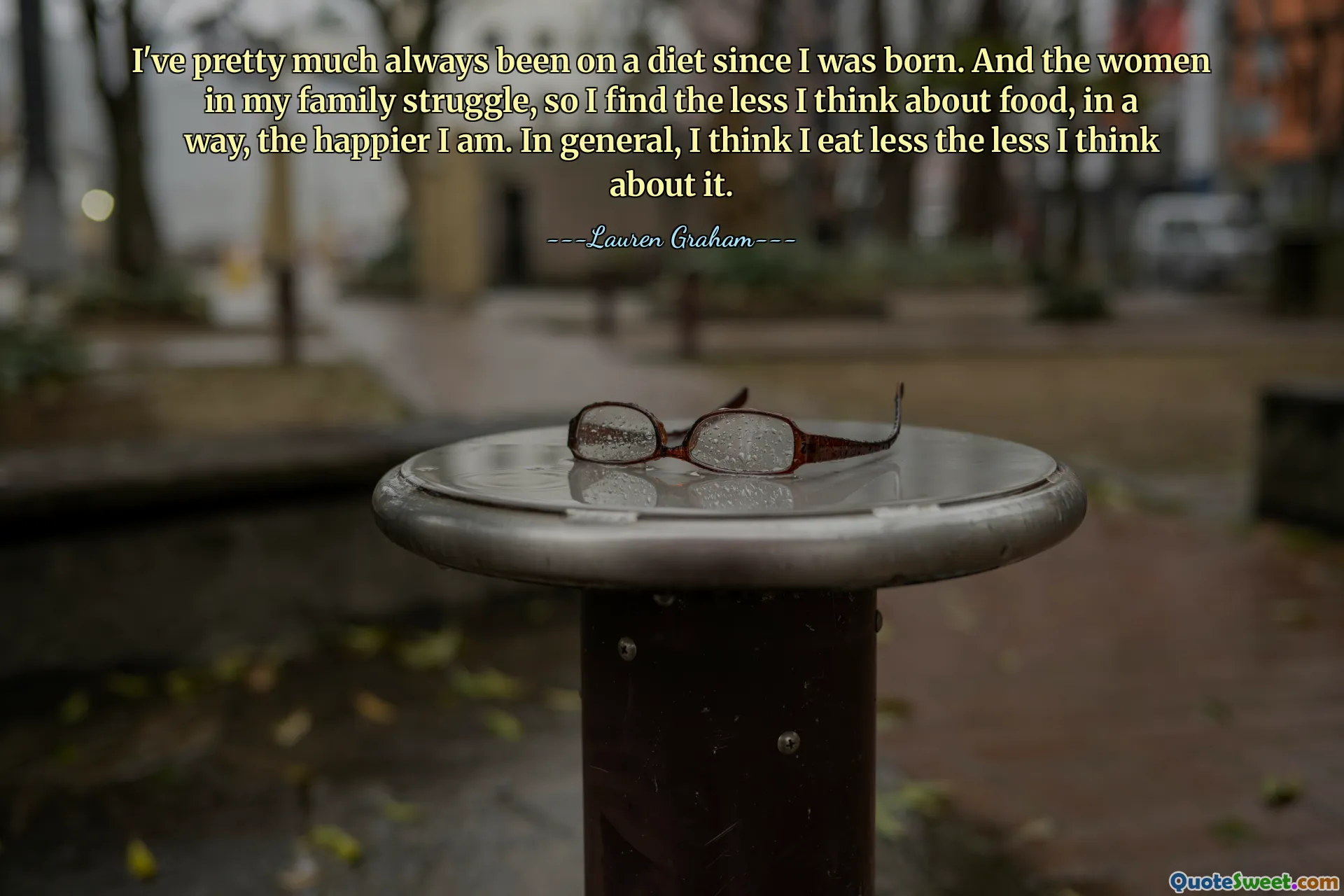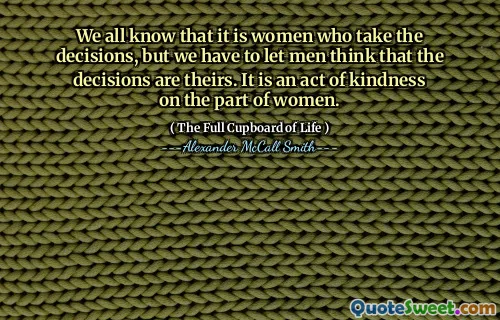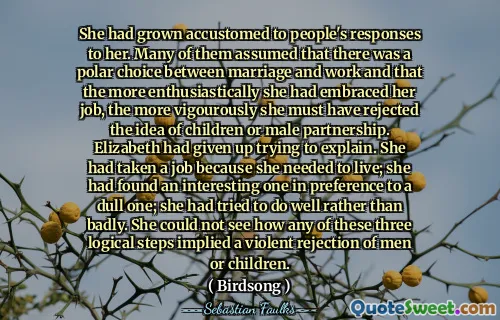
I've pretty much always been on a diet since I was born. And the women in my family struggle, so I find the less I think about food, in a way, the happier I am. In general, I think I eat less the less I think about it.
This quote reveals a deep personal connection with the complex relationship many people have with food and body image. It underscores that constant preoccupation with dieting can often lead to stress and dissatisfaction rather than fulfillment. The speaker's acknowledgment of growing up in a family where women struggle suggests that ideas around food and weight may have been ingrained early on, making dieting a persistent aspect of their life from a young age. Interestingly, their insight about happiness correlating with reduced focus on food points to a counterintuitive truth: sometimes, overthinking about eating and weight can intensify issues rather than resolve them. This insight aligns with contemporary understandings of mindful eating and self-acceptance, emphasizing that a less obsessive approach to food often leads to healthier habits and better mental well-being. Furthermore, the idea that less thinking equals less eating hints at the power of reducing compulsive behaviors through psychological shifts, encouraging a more intuitive connection with one’s body signals for hunger and satiety. The quote essentially advocates for a more relaxed relationship with food — one that requires less mental energy and fosters overall happiness. It resonates with anyone who has struggled with restrictive diets or guilt associated with eating, reminding us that easing up can sometimes be the key to healthier, more sustainable habits.











